Tuesday, September 20th, 2016 at
6:16 pm
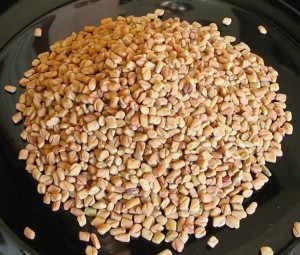 The herbal remedy fenugreek could help reduce hot flashes in postmenopausal women, and improve their quality of life, according to new evidence.
The herbal remedy fenugreek could help reduce hot flashes in postmenopausal women, and improve their quality of life, according to new evidence.
Data published in Phytotherapy Research indicated that hot flashes decreased by 48% in women taking a standardised extract of fenugreek (Trigonella foenum-graecum). Other benefits of the herb were improved, including vaginal dryness, irritability, anxiety, night sweats, mood swings, insomnia, and headaches, wrote the researchers.
Read more…
Friday, April 15th, 2016 at
6:09 pm
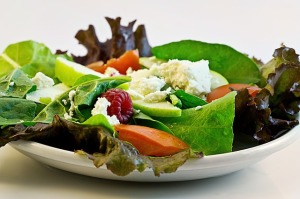 There is so much contradicting dietary advice out there, it can be hard to navigate what is true and what isn’t. Eat breakfast. Don’t eat breakfast. Ditch carbs. Become vegan. Who’s right? The truth is, there are a few fundamental rules to having a healthy relationship with your food that you should heed — and none of them tell you what types of foods to eat. Here are 5 universal dietary rules you should follow.
There is so much contradicting dietary advice out there, it can be hard to navigate what is true and what isn’t. Eat breakfast. Don’t eat breakfast. Ditch carbs. Become vegan. Who’s right? The truth is, there are a few fundamental rules to having a healthy relationship with your food that you should heed — and none of them tell you what types of foods to eat. Here are 5 universal dietary rules you should follow.
Continue reading…
Wednesday, March 9th, 2016 at
6:08 pm
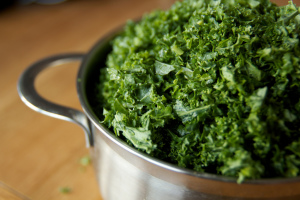 In the food world, the biggest celebrity of all might be kale — the Shakira of salads, the Lady Gaga of leafy greens. It’s universally recognized that kale anything–kale chips, kale pesto, kale face cream — instantly imparts a health halo. Even 7-Eleven is making over its image by offering kale cold-pressed juices. And yes, kale has plenty of benefits — including high levels of folate and more calcium, gram for gram, than a cup of milk.
In the food world, the biggest celebrity of all might be kale — the Shakira of salads, the Lady Gaga of leafy greens. It’s universally recognized that kale anything–kale chips, kale pesto, kale face cream — instantly imparts a health halo. Even 7-Eleven is making over its image by offering kale cold-pressed juices. And yes, kale has plenty of benefits — including high levels of folate and more calcium, gram for gram, than a cup of milk.
Still, kale’s actually not the healthiest green on the block.
Continue reading…
Monday, March 7th, 2016 at
2:08 pm
 Every man needs to take an active approach to managing his own health for the better. Good habits, like regular exercise, are vital, and avoiding bad habits (or at least minimizing them) is also imperative. One of the most powerful influences on a man’s health is his diet, and as an extension of that, there are a number of herbs that can help support concerns specific to men, namely vitality, prostate health, and sex drive. Here are seven of those herbs and the positive results they can encourage.
Every man needs to take an active approach to managing his own health for the better. Good habits, like regular exercise, are vital, and avoiding bad habits (or at least minimizing them) is also imperative. One of the most powerful influences on a man’s health is his diet, and as an extension of that, there are a number of herbs that can help support concerns specific to men, namely vitality, prostate health, and sex drive. Here are seven of those herbs and the positive results they can encourage.
Continue reading…
Monday, March 7th, 2016 at
10:09 am
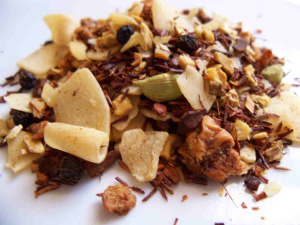 Fatigue, mood swings, night sweats and decreased libido are just a few of the uncomfortable symptoms that accompany menopause, a process that marks the end of a woman’s fertility, typically occurring around the age of 51.
Fatigue, mood swings, night sweats and decreased libido are just a few of the uncomfortable symptoms that accompany menopause, a process that marks the end of a woman’s fertility, typically occurring around the age of 51.
Hormone replacement therapy, including estrogen, progesterone and testosterone, is frequently offered as a treatment for menopause-related hormone imbalances; however, many people experience drug-related side effects. Long-term use and taking the incorrect dosage can contribute to some very serious health risks, including breast cancer, blood clots, myocardial infarction and stroke.
However, a report by EmpowHer.com lists five natural herbs that are helpful in reducing the irritating and sometimes painful symptoms associated with menopause.
Continue reading…
Monday, February 29th, 2016 at
2:07 pm
 Our bodies are around 60% water, give or take.
Our bodies are around 60% water, give or take.
It is commonly recommended to drink eight 8-ounce glasses of water per day (the 8×8 rule).
Although there is little science behind this specific rule, staying hydrated is important.
Here are evidence-based health benefits of drinking plenty of water.
Water Helps to Maximize Physical Performance
Dehydration can have a noticeable effect if you lose as little as 2% of your body’s water content. However, it is not uncommon for athletes to lose up to 6-10% of their water weight via sweat.
This can lead to altered body temperature control, reduced motivation, increased fatigue and make exercisefeel much more difficult, both physically and mentally.
Optimal hydration has been shown to prevent this from happening, and may even reduce the oxidative stress that occurs during high intensity exercise. This is not surprising when you consider that muscle is about 80% water.
Hydration Has a Major Effect on Energy Levels and Brain Function
Your brain is strongly influenced by hydration status.
Studies show that even mild dehydration (1-3% of body weight) can impair many aspects of brain function.
Continue reading…
Wednesday, February 24th, 2016 at
2:07 pm
 Diets high in fat and low in carbohydrates, such as the ketogenic or modified Atkins diet, may reduce seizures in adults with tough-to-treat epilepsy, according to a review of the research published in the October 29, 2014, online issue ofNeurology®, the medical journal of the American Academy of Neurology.
Diets high in fat and low in carbohydrates, such as the ketogenic or modified Atkins diet, may reduce seizures in adults with tough-to-treat epilepsy, according to a review of the research published in the October 29, 2014, online issue ofNeurology®, the medical journal of the American Academy of Neurology.
Epilepsy is a nervous system disorder in which the nerve cells in the brain work abnormally, causing seizures. About 50 million people have epilepsy worldwide, according to the World Health Organization.
“We need new treatments for the 35 percent of people with epilepsy whose seizures are not stopped by medications,” said study author Pavel Klein, M.B.,B. Chir., of the Mid-Atlantic Epilepsy and Sleep Center in Bethesda, Md., and a member of the American Academy of Neurology. “The ketogenic diet is often used in children, but little research has been done on how effective it is in adults.”
Continue reading…
Wednesday, February 17th, 2016 at
10:09 am
 Pesticides are an increasing concern among populations all across the world. Even organic food, which is grown without the use of chemical additions, are suffering from the effects of pesticide overexposure. Not only are they harming our food, our bodies, and our environment, many pesticides may be non essential when it comes to keeping crops safe from insects. Here are some of the shocking facts about pesticides that everyone should know.
Pesticides are an increasing concern among populations all across the world. Even organic food, which is grown without the use of chemical additions, are suffering from the effects of pesticide overexposure. Not only are they harming our food, our bodies, and our environment, many pesticides may be non essential when it comes to keeping crops safe from insects. Here are some of the shocking facts about pesticides that everyone should know.
Children Harmed by Pesticide Exposure, Yet EPA Says There isn’t an Issue
Three recent university studies, spanning up to 14 years in duration, have proven Chlorpyrifos as negatively impacting human health, including organ damage, mental disorders, learning disabilities, increased autism rates, and an average of 7 IQ point decline in children exposed. EPA continues to turn a blind eye.
Continue reading…
Monday, February 15th, 2016 at
10:08 am
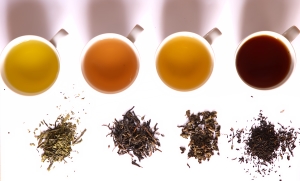 You already know that tea can improve your skin and help keep you fit and trim, but did you know that it also does amazing things for your health?
You already know that tea can improve your skin and help keep you fit and trim, but did you know that it also does amazing things for your health?
Tea has been around for millenia. Through that time, the Chinese have drunk it for everything from hangover prevention to weight control and common cold reduction. Now, modern scientific research has given us a much better insight into how tea improves health and to what benefit.
True tea, or that from the Camellia sinensis plant, includes white, green, oolong, black and pu-erh. All of them contain antioxidants, catechins, and polyphenols, which positively impact our bodies.
Let’s dive into what the research shows.
Continue reading…
Wednesday, February 10th, 2016 at
10:06 am
 The following compilation describes a long list of the most valuable foods on the planet, which were sought by kings of ancient civilizations. Olive oil was used to anoint kings; chia seeds were used as an energy source by Aztec warriors, and only the emperors of ancient China’s Ming Dynasty were allowed to eat of the “forbidden rice” (black rice). The Romans fed their gladiators barley. And the “New World” discovery of America by Europeans was nothing more than an attempt to find a new path to the spices of India. Little did Columbus and his crews know that the Native Americans already figured out natural remedies long, long before that. These ancient cultures traded too.
The following compilation describes a long list of the most valuable foods on the planet, which were sought by kings of ancient civilizations. Olive oil was used to anoint kings; chia seeds were used as an energy source by Aztec warriors, and only the emperors of ancient China’s Ming Dynasty were allowed to eat of the “forbidden rice” (black rice). The Romans fed their gladiators barley. And the “New World” discovery of America by Europeans was nothing more than an attempt to find a new path to the spices of India. Little did Columbus and his crews know that the Native Americans already figured out natural remedies long, long before that. These ancient cultures traded too.
Question: Do you really “eat healthy” or do you just think that you do? How much do you really know about what the ancient kings knew back then, that you could be making your very own staple diet?
Continue reading…
 The herbal remedy fenugreek could help reduce hot flashes in postmenopausal women, and improve their quality of life, according to new evidence.
The herbal remedy fenugreek could help reduce hot flashes in postmenopausal women, and improve their quality of life, according to new evidence.









